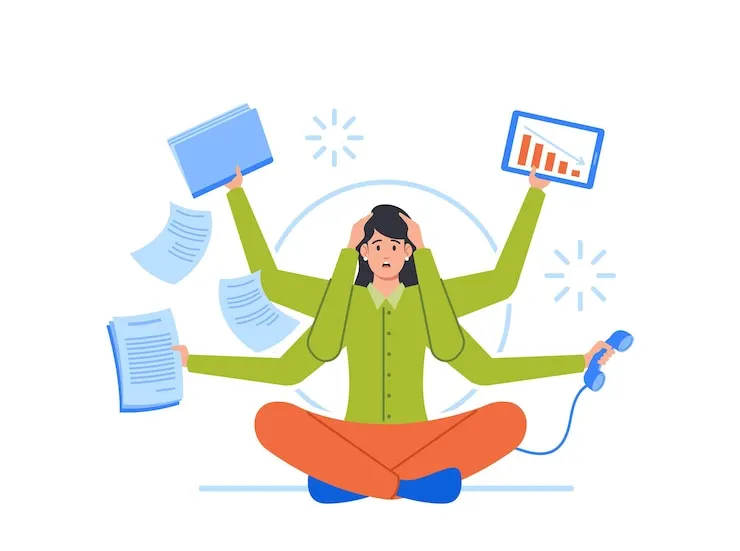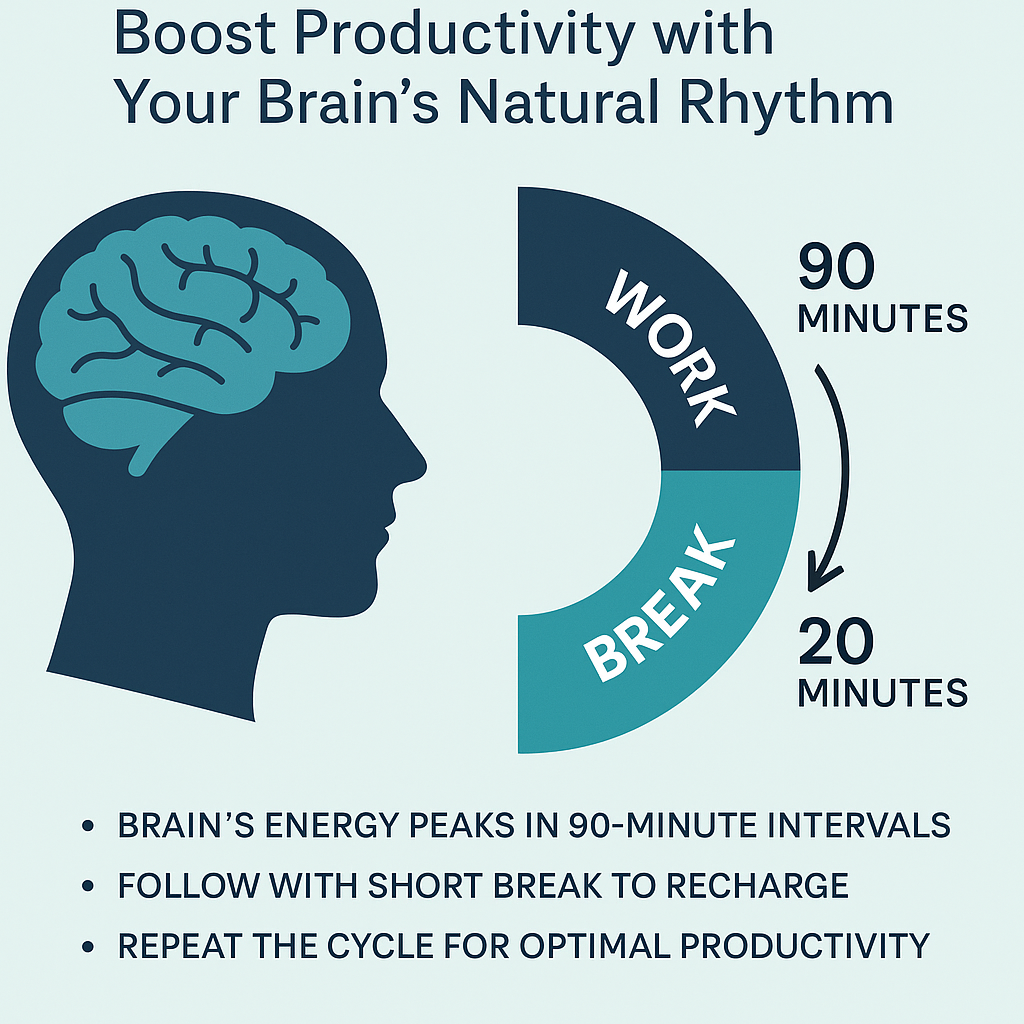🧠 Introduction:
Multitasking is seen as a modern superpower. We juggle tabs, texts, emails, and streaming videos — all while trying to focus on work or study. But is our brain really built for that?
Let’s explore what neuroscience and psychology say about multitasking — and what it’s doing to your focus, memory, and productivity.
🧩 What Is Multitasking, Really?
Multitasking feels like doing two things at once. But in reality, your brain is rapidly switching tasks, not doing them simultaneously.
This is called “task-switching”, and it comes at a cost.
⚠️ What Science Says: Multitasking Makes You Worse at Everything
Here’s what studies have found:
- Productivity drops by up to 40% when switching tasks
- Frequent multitaskers have more difficulty filtering distractions
- Memory and recall are weaker when multitasking
- Chronic multitasking may lead to less gray matter in the brain’s control center (Stanford study)
🧪 Source: Stanford University, Journal of Experimental Psychology
🔄 Your Brain Has a “Switching Cost”
Each time you switch from one task to another (email → essay → TikTok → back to essay), your brain needs a few seconds to “reset.”
That delay, multiplied over time, leads to:
- More mental fatigue
- Increased errors
- Lower comprehension
This is why you might feel busy all day but still get nothing meaningful done.
🧠 Multitasking Rewires Your Brain — and Not in a Good Way
A study from the University of Sussex showed that people who multitask frequently have less brain density in the anterior cingulate cortex — the region responsible for empathy, emotional control, and decision-making.
Too much multitasking can literally change your brain structure.
📚 So, Should You Never Multitask?
There are exceptions. Some routine tasks (like walking + listening to music) don’t require much cognitive load.
But for anything that needs deep focus (studying, writing, learning), multitasking does more harm than good.
✅ 5 Ways to Train Your Brain to Focus Again
- Use the “Single-Task Sprint” Technique
Set a timer for 20–30 minutes. Do one task — no switching. Rest, then repeat. - Block Digital Distractions
Use tools like Freedom, Cold Turkey, or built-in Focus Modes. - Practice Mindfulness
10 minutes of meditation per day increases cognitive control over time. - Create Task Blocks
Group similar tasks (e.g., all emails or reading) into chunks of time. - Turn Off Multitasking Triggers
Disable notifications, close unused tabs, and use “Do Not Disturb” modes.
💬 Final Thoughts
Multitasking may feel productive, but science paints a different picture.
Want to think faster, remember more, and truly get things done?
Start doing less at once — and you’ll achieve more in the long run.
📥 Call to Action
Did this surprise you? Share it with someone who needs to hear it — and check out our blog for more brain-boosting tips!




